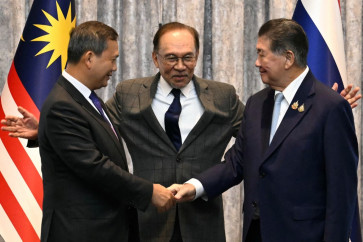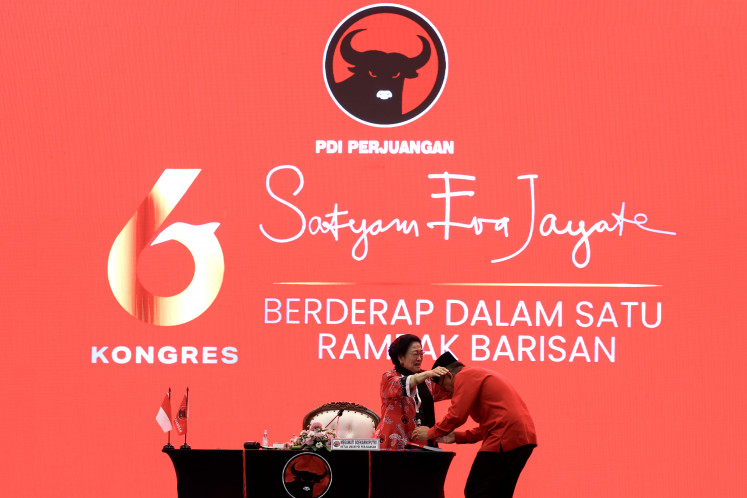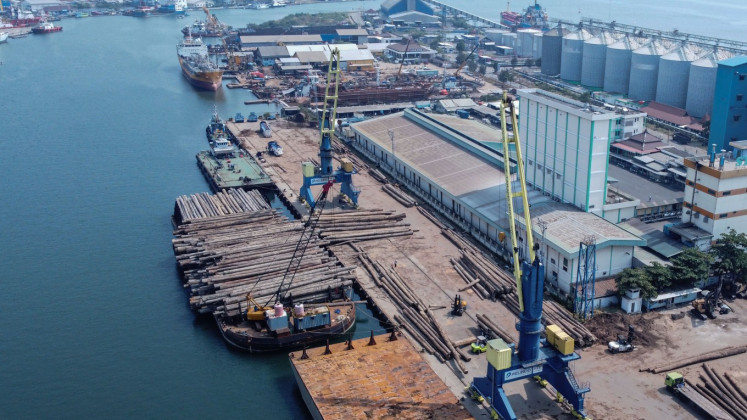Popular Reads
Top Results
Can't find what you're looking for?
View all search resultsPopular Reads
Top Results
Can't find what you're looking for?
View all search resultsGovt agrees to revise export tax over protests
The government will soon introduce a new ruling on the export tax imposed on crude palm oil (CPO) which will among others lower the tax cap from the current 25 percent following a strong protest from producers, a senior finance official says
Change text size
Gift Premium Articles
to Anyone
T
he government will soon introduce a new ruling on the export tax imposed on crude palm oil (CPO) which will among others lower the tax cap from the current 25 percent following a strong protest from producers, a senior finance official says.
Bambang Brodjonegoro, the head of the Finance Ministry’s fiscal policy office (BKF), said Monday that in addition to the reduction of the tax cap, the new ruling would also raise the non-taxable price threshold for CPO exports.
Bambang did not disclose the new export tax rate but he said it would be lower than 25 percent but higher than 15 percent. The non-taxable price threshold might be raised to US$750 per ton from $700 per ton at present, he added.
He said that the cut in the tax rate cap and the raise in the non-taxable price threshold would allow producers to benefit more from the surge in CPO prices in the world market.
The government introduced the tax export on CPO products in 2008 in order to protect the domestic supply amid a sharp increase in CPO prices in the world market.
The government uses a progressive tax rate based on official price references. Currently, the government put $700 per ton as the threshold to determine how much exporters should pay.
Exporters will have to pay an export tax of 1.5 percent for every $50 increase in the price from the threshold.
The export duty for July deliveries, which is based on the July reference price of $1,168 per metric ton, is 20 percent, rising from 17.5 percent in June. The government will announce the export duty delivery for August on Wednesday.
“Export duties are not meant for revenues, but more for the side-effect, to ensure domestic demand is not disrupted, so that oil prices do not fluctuate,” he told reporters on the sidelines of a meeting with members of the House of Representatives in Jakarta.
Indonesia, one of the world’s major exporters of coal, crude palm oil, tin, cacao and rubber, among other commodities, has benefited from an upward trend in global commodity prices in the past year.
Meanwhile, the Indonesian Palm Oil Producers Association (Gapki) chairman Fadhil Hasan told The Jakarta Post on Monday that the revision of the export duty rule was not significant as currently the average price of palm oil in overseas markets had exceeded $1,000.
Fadhil added that the new regulation would not accommodate the aspirations of palm oil producers, which previously demanded a flat tax rate on palm oil exports to enable producers as well as farmers to benefit from the price surges.
According to Gapki, 3 percent is an ideal tax for palm oil exports when the price is above $700 per ton.
“It’s okay to implement a progressive tax system, but we want the tax to range between 5 and 15 percent whenever the prices reaches around $900 to $1,250,” he said.










